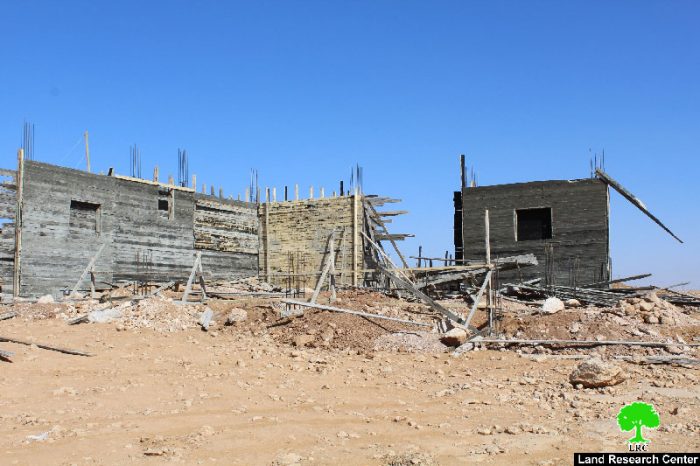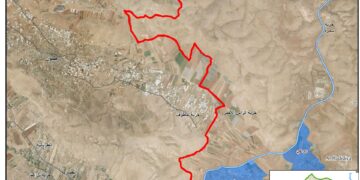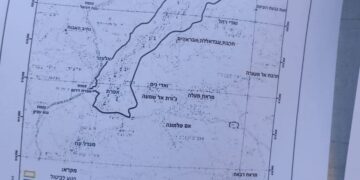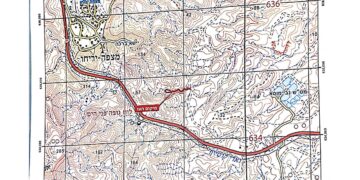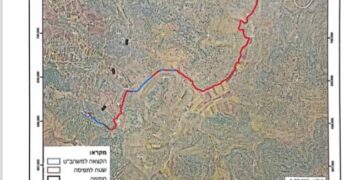- Violation: serving a stop-work order on a house
- Location: Al-Deirat village- Yatta town
- Date: October 09, 2016
- Perpetrators: the so-called Israel Civil Administration
- Victims: citizen Mahmoud Al-Adra
Details:
Israeli Occupation Forces served on October 09, 2016 a stop-work order on the residence of citizen Mahmoud Al-Adra in Al-Deirat village, east Yatta town in Hebron governorate on the claim of "unlicensed construction".
Al-Adra asserted that a vehicle relative to the so-called Israel Civil Administration arrived at the area known as "Al-Hayyeh" and delivered a stop-work order on the structure that was still under construction. Noteworthy, photos of the structures were taken by the officer.
The order no. 202084 mentioned that the targeted structure was "unlicensed". October 31, 2016 was assigned as the hearing session of the Inspection Sub-Committee in the Israeli court of Beit El colony to consider whether to demolish the structure or restore its previous status.
It should be marked that the 130m2 residence is supposed to be home for the owner's four member family including two children.
About Al-Deirat :
Al-Deirat village is located to the east of Yatta town and is about 6km away from it. The village is considered agricultural and is inhabited by 700 people; a village council runs the affairs of al-Deirat despite there is no headquarter for the council itself.
A number of families reside in the village namely : (al-Hamamdah, Musa'fieh , al-Adra); al-Deirat is split by the bypass road no. 60, which links all Israeli colonies in the north with those in the south.
The village is edged by Arab al-Ka'abna and al-Karmel colony from the east, Yatta town from the west, Khirbet al-Bwaib from the north and Ma'on colony and Um Lisfa village from the south .Residents of the area aspire to obtain a master-plan for the village that includes their houses in order to protect them from Israeli orders of stop-work and demolition.
Land Research Center LRC sees that demolitions contradict with all the International conventions and Humanitarian laws including:
Article 17 of the (1948) Universal Declaration of Human Rights stating: “Everyone has the right to own property alone as well as in association with others. No one shall be arbitrarily deprived of his property.”
Section ‹G› of article 23 of the (1907) The Hague Conventions asserting: “In addition to the prohibitions provided by special Conventions, it is especially forbidden to destroy or seize the enemy's property, unless such destruction or seizure be imperatively demanded by the necessities of war.”
Article 53 of the Geneva Fourth Convention (1948) declaring: “Any destruction by the Occupying Power of real or personal property belonging individually or collectively to private persons, or to the State, or to other public authorities, or to social or cooperative organizations, is prohibited, except where such destruction is rendered absolutely necessary by military operations.”
Section 1, Article 11 of the International Covenant on Economic, Social and Cultural Rights (1966): “The States Parties to the present Covenant recognize the right of everyone to an adequate standard of living for himself and his family, including adequate food, clothing and housing, and to the continuous improvement of living conditions. The States Parties will take appropriate steps to ensure the realization of this right, recognizing to this effect the essential importance of international co-operation based on free consent."
Prepared by
The Land Research Center
LRC

